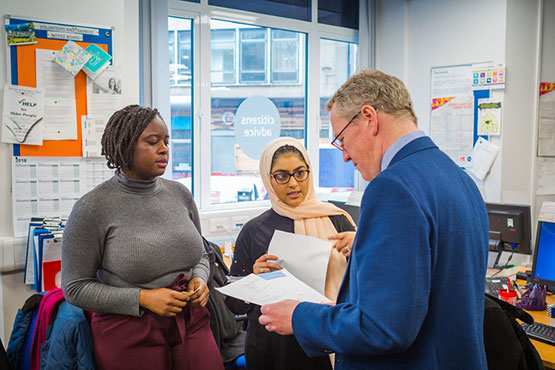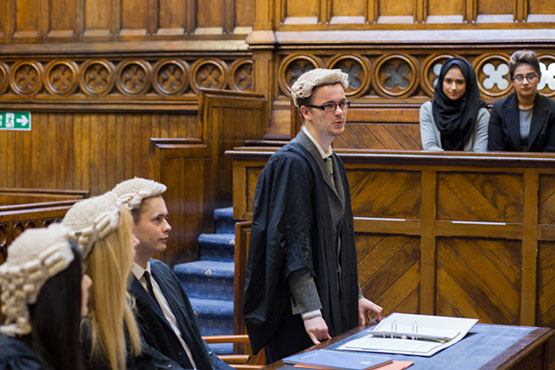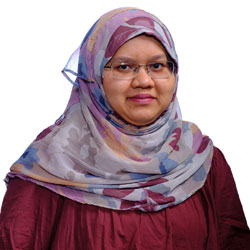
Learning and assessment
This LLM programme aims to integrate applied and theoretical knowledge with assessment processes that test knowledge, application and analysis of the subject. To this end, the learning, teaching and assessment strategy for this programme has been developed to help you build your knowledge incrementally over the year of study and to develop your research, critical thinking and writing skills.
You will be taught in small groups in an environment focused on you and your development. Your learning will be guided and supported through weekly teaching and learning sessions in which you will take part in a variety of activities. All taught modules therefore have a two hour teaching slot every week throughout the Semester in which they are taught. In the early part of the programme, most of these slots will be used as class time with lecturer input, individual and group work activities. The scheduled class time will be used to help you develop your understanding of the law relating to the topic at hand.
You will be required to work independently, prepare for all teaching sessions and take all opportunities offered to develop your skills and knowledge, contribute to small group discussions and engage with other activities supported through the Virtual Learning Environment.
Enhancing your employability

Law Clinic
Our Law Clinic gives students an opportunity to put theory into practice. As part of their degree, students work in our Law Clinic advising members of the public in conjunction with a number of local organisations including the Citizens Advice Bureau and Girlington Advice Centre.
The Law Clinic provides free comprehensive legal advice to members of the public. Family matters, relationship breakdown, divorce, employment issues, civil disputes and neighbour disputes are all within the scope of the Clinic.

Mooting
Our students have the opportunity to get involved in a range of internal and external mooting competitions.
Mooting complements students' legal education and is a great way to learn how to use the law to create persuasive legal arguments. Students have to analyse problems, research the law, prepare written submissions and present their arguments to a trained lawyer or judge.
The competition imitates the procedures followed in appeal courts, and is a great chance for students to put their skills and knowledge into practice.
Study support
You will be allocated a personal tutor - someone with whom you will be able to talk about any academic or personal concerns. Staff responsible for the administration of the LLM are available to help you with day-to-day queries about the programme.
We are a small, dedicated and friendly Law School, allowing our academic and support staff to get to know students personally, and offer individual support and teaching. We make sure that your time with us is as rewarding as possible, and do everything we can to help you reach your potential.
The Law Library has dedicated support from our Law Librarian, who will be able to provide you with guidance on the use of legal databases, OSCOLA referencing or finding a book in the library.
As well as offering access to key textbooks and other materials in hard copy, the law library also subscribes to three of the key legal databases:
- Westlaw
- Lexis Library
- Hein Online
You'll therefore have 24 hour electronic access, on and off campus, to the majority of material you require to successfully complete your programme. Where tutors require you to read material which is not as readily available, it will be made available to you though the Virtual LEarning Environment. You are encouraged to also consult other collections as there is interesting and useful material on all of the topics studied available from a variety of disciplines, and you will therefore be introduced to the library as a whole rather than just specific collections as part of this programme.
The Library includes self-issue and self-return facilities, photocopiers and printers, areas for silent study and social learning, and wireless access throughout the building. There is an information desk, a special computer laptop bar, and areas for social learning. The building incorporates full disability access. LLM students also have access to social spaces including Postgraduate Common Room.
Research
All modules are taught by experienced academics with considerable research and practical expertise in the issues you will study from various jurisdictions.
At the end of your LLM you will be taking a dissertation module, using a range of research methods and research design in order to complete a substantial research project. The dissertation enables you to develop a firm understanding of advanced scholarship and research principles, and of how the boundaries of knowledge are extended through academic research.
Through your dissertation you will also learn how to critically assess and examine primary and/or secondary data, and develop an in-depth understanding of your chosen topic.













